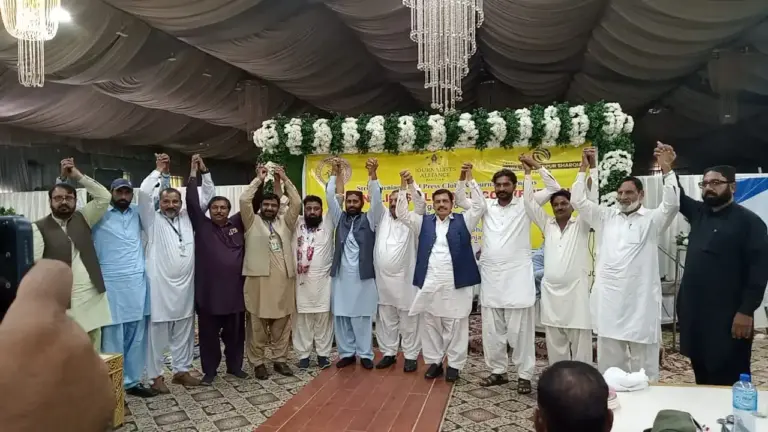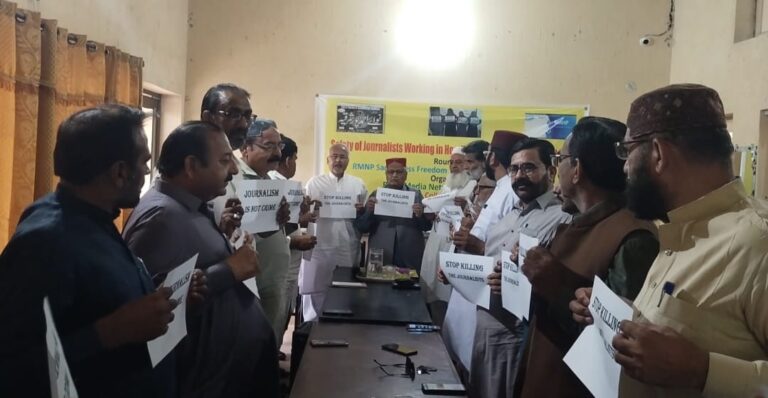IFEX Conference
On 7-12 October, the International Freedom of Expression eXchange (IFEX) held its conference and workshops in Uruguay, where 10 new organisations were voted in as members. IFEX now has 81 members around the world.
Campaigning sessions were devoted to advocating for free expression across Africa and Latin America, to improve human rights around the 2008 Beijing Olympic Games, the terrible situation for free expression in Burma, and the international mission to Nepal.
Also at the conference, participants got practical, technical advice from experts during a one-day forum on information and communication technology. The experts divulged a slew of tips, including how to get around Internet censors, how to create and maintain a secure email
address, ways to spread campaign news using easy movie-making software, and how to save money on telephone bills by setting up voice communications over the Internet.
The six-day conference was hosted by the World Association of Community Radio Broadcasters (AMARC) and the Institute of Press and Society (Instituto Prensa y Sociedad, IPYS), with support from local groups Comunica and the Uruguayan Journalists Association (APU).
171 journalists killed world-wide, 13 of them Pakistanis
The annual press freedom report released by Rural Media Network Pakistan in both English and Urdu today pointed out that of the 171 journalists killed since the beginning of 2005, 13 were Pakistanis. According to the report 807 journalists world-wide were arrested in 2005, 1,308 physically attacked or threatened, and 1,006 media outlets censored.
In addition to the 13 journalists killed in Pakistan, 11 Pakistani journalists were killed in the 2005 earthquake which hit Azad Kashmir, Northern areas and NWFP during the Holy month of Ramzan. A total of 242 journalists and media workers were badly affected by the disaster and 12 of 20 buildings belonging to press clubs and journalist’s associations were either destroyed or badly damaged in the earthquake.
Two Pakistani journalists, Amir Nawab of The Frontier Post and Allah Noor of Khyber Television, were shot dead by unknown gunmen on 7th February 2005 in Northern Waziristan.
Another Pakistani journalist, Hadayatullah Khan, who was kidnapped last year by armed gunmen is still not free despite repeated demands and protests by journalist’s associations and unions in Pakistan. The Pakistan government has informed the Hadayatullah family that he is in the custody of United States of America.
Rural Media Network Pakistan reported that the Pakistan Government had issued licenses to establish new TV and FM radio channels, but at the same time had failed to implement the Freedom of Information Rules 2004 in a true spirit. Citizens did not get the public documents promised by the federal governments because the 19 grade officers designated for this purpose did not even know the procedure for the implementation of FOIR 2004.
The Report added that neither the bureaucracy nor the Pakistan government were ready to get rid of the old culture of secrecy. Pakistan’s rating on the Freedom House free press scale dropped from “partly free” to “not free” to reflect increased harassment of journalists and media outlets by the authorities, as well as the passage of a bill that increased penalties for defamation.
The Government had also failed to reach an agreement with the Council of Pakistan Newspaper Editors (CPNE) and All Pakistan Newspapers Society (APNS) on a constitution for a press council, and amendments to defamation laws.
The annual report highlighted the state of press freedom in rural Pakistan. There senior journalist, Shabbir Rao, was assaulted and injured in Bhakkar and cases were registered against journalists in Ahmedpur East, Fazalpur, DeraGhaziKhan and other small towns. The office of a daily paper in RahimyarKhan district was ransacked.
The report finished by pointing out that in the last year not one training opportunity had been provided by the government or the big media houses, and only two national professional organisations were operating in rural areas.



